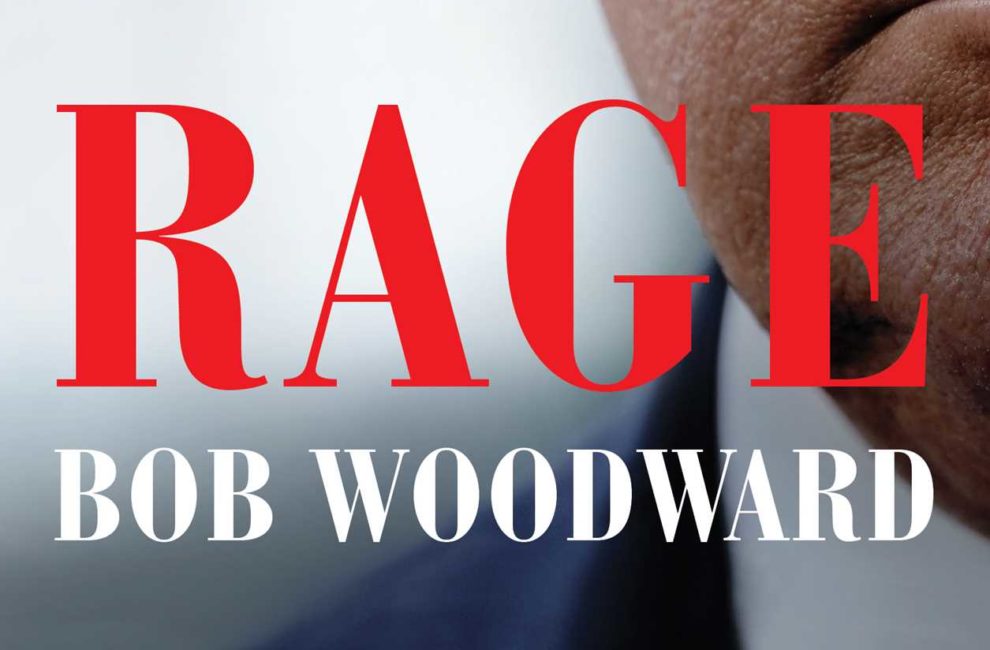All the President’s Hoosiers

Simon and Schuster
Of the many Hoosiers who stock the Trump administration, perhaps none had the moral conscience of former Director of National Intelligence Dan Coats. At least that’s how Bob Woodward, the famous chronicler of White House power, portrays the affable and “gentlemanly” former Indiana Senator in his latest Trump-era tome, Rage.
Coats, featured as a do-gooder protagonist throughout Woodward’s narrative, is just one of four Hoosiers that play a supporting role in Rage. Here’s how each fares in the sure-to-be New York Times bestseller:
Dan Coats
While Rage’s sourcing is on “deep background”—meaning, in Woodward’s terms, “all information could be used but I would not say who provided it”—it’s pretty clear to even the most casual reader that Coats participated. We go inside private conversations with Coats and his wife, Marsha, as well as fellow Hoosier Vice President Mike Pence, who we learn recruited Coats into the Trump administration. A scene near the book’s beginning takes us in a solemn gathering at the then-Indiana governor’s retreat at Aynes house in Brown County. There, Dan, Marsha, Mike, and Karen supped and prayed together about their respective futures. Coats decided not to seek another term in the Senate; Pence opted for a second gubernatorial run rather than a presidential one. Trump initially considers Coats for an ambassador to Russia or China, but ultimately settles on installing him as his director of national intelligence.
Once in the administration, Coats seems to catch on that Trump does not operate on the up-and-up. “He found himself waking up in the middle of the night thinking, oh my God, what has he tweeted,” Woodward writes of Coats. He loses weight under the heaviness of his new job. “Trump was on a different page than just about anything I believed in,” Coats is quoted as saying in the book. “To him, a lie is not a lie,” Coats tells Mattis. “It’s just what he thinks. He doesn’t know the difference between the truth and a lie.”
Coats is occasionally critical of the flaccid Senate Republicans ceding power to Trump, though he “did not want to be the person to speak out and say, ‘Hey, you guys got to stand up.’”
Mattis, who Coats sometimes called for advice, saw Coats “as a model of what was needed in government service—although maybe he was too decent,” Woodward writes.
After bumping into Trump at Trump National Club’s clubhouse, Marsha Coats, a psychologist had a bad feeling. By the sixth hole, Coats was reading a tweet from Trump that he had been replaced.
Marsha Coats
Dan and Marsha, at one point Indiana’s only national committeewoman during the 2016 presidential race, form a sort of two-person Greek chorus in the book, among the only characters lamenting the president’s amorality.
Trump, Marsha thought, was “a philanderer and womanizer, no doubt about that.” But she ignored those attributes because he was pro-life.
“I truly believe the office will change Donald Trump. I believe it will humble him. And I think Donald will be impelled to turn to God for guidance.”
“Trump is so controversial. He’s the kind of person that would inspire crazy people.”
Alex Azar
The Secretary of Health and Human Services and former president of Eli Lilly USA is little more than a supporting character in the book. He pressures his Chinese counterpart to allow investigators into China to understand and surveil the novel coronavirus, but is stonewalled. He argues for a travel ban from China in the early days of the coronavirus, and helms the initial task force, until Trump replaces him with Pence.
Vice President Mike Pence
Pence doesn’t appear to have participated in the book, and often comes across as something of a cipher if not a ghost. In the period of the transition, he woos would-be cabinet officials into the administration, including former Secretary of State Rex Tillerson. But throughout much of the narrative, he seems little more than a potted plant, except for when he is begging officials like Coats to stay in the administration against their better judgement and plans to resign.
“Once he became vice president,” Coats says, “he built that kind of cocoon around him that basically said, this is the role of the vice president.” Woodward adds that “In Coats’s eyes, his old friend had become passive subservient and obedient.”
Coats’ wife, Marsha, adds: “Mike Pence, no doubt, he believes God put him where he is and his job is to be a good VP. A loyal and supportive—even though he doesn’t agree with so much of it.”She also tells a story of a dinner with the Pences at the White House amid a time when Trump had done another “outrageous” thing. Earlier in the evening, Pence told Coats in a sidebar conversation to “Stay the course.” At the end of the night, the vice president bid his fellow Hoosiers goodbye. “And I just looked at him like, this is horrible. I mean, we made eye contact,” Marsha says. “I think he understood. And he just whispered in my ear, ‘Stay the course.’”





